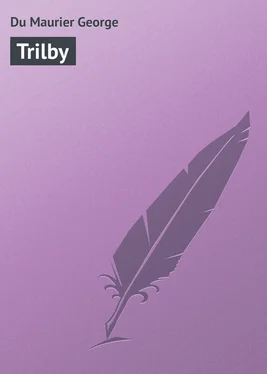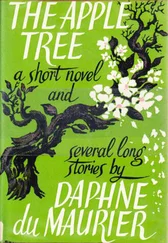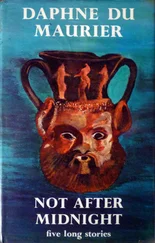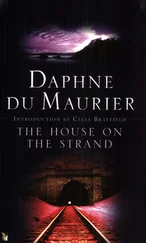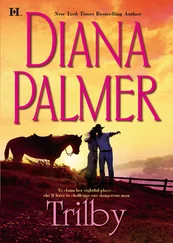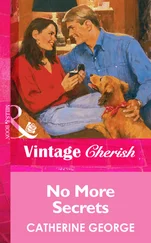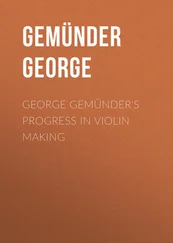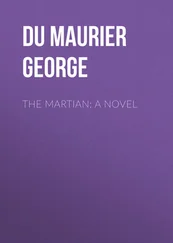George Du Maurier - Trilby
Здесь есть возможность читать онлайн «George Du Maurier - Trilby» — ознакомительный отрывок электронной книги совершенно бесплатно, а после прочтения отрывка купить полную версию. В некоторых случаях можно слушать аудио, скачать через торрент в формате fb2 и присутствует краткое содержание. ISBN: , Жанр: foreign_prose, на английском языке. Описание произведения, (предисловие) а так же отзывы посетителей доступны на портале библиотеки ЛибКат.
- Название:Trilby
- Автор:
- Жанр:
- Год:неизвестен
- ISBN:http://www.gutenberg.org/ebooks/39858
- Рейтинг книги:4 / 5. Голосов: 1
-
Избранное:Добавить в избранное
- Отзывы:
-
Ваша оценка:
- 80
- 1
- 2
- 3
- 4
- 5
Trilby: краткое содержание, описание и аннотация
Предлагаем к чтению аннотацию, описание, краткое содержание или предисловие (зависит от того, что написал сам автор книги «Trilby»). Если вы не нашли необходимую информацию о книге — напишите в комментариях, мы постараемся отыскать её.
Trilby — читать онлайн ознакомительный отрывок
Ниже представлен текст книги, разбитый по страницам. Система сохранения места последней прочитанной страницы, позволяет с удобством читать онлайн бесплатно книгу «Trilby», без необходимости каждый раз заново искать на чём Вы остановились. Поставьте закладку, и сможете в любой момент перейти на страницу, на которой закончили чтение.
Интервал:
Закладка:
George Du Maurier
Trilby
Part First
"Mimi Pinson est une blonde,
Une blonde que l'on connaît;
Elle n'a qu'une robe au monde,
Landérirette! et qu'un bonnet!"
IT was a fine, sunny, showery day in April.
The big studio window was open at the top, and let in a pleasant breeze from the northwest. Things were beginning to look shipshape at last. The big piano, a semi-grand by Broadwood, had arrived from England by "the Little Quickness" ( la Petite Vitesse , as the goods trains are called in France), and lay, freshly tuned, alongside the eastern wall; on the wall opposite was a panoply of foils, masks, and boxing-gloves.
A trapeze, a knotted rope, and two parallel cords, supporting each a ring, depended from a huge beam in the ceiling. The walls were of the usual dull red, relieved by plaster casts of arms and legs and hands and feet; and Dante's mask, and Michael Angelo's altorilievo of Leda and the swan, and a centaur and Lapith from the Elgin marbles – on none of these had the dust as yet had time to settle.
There were also studies in oil from the nude; copies of Titian, Rembrandt, Velasquez, Rubens, Tintoret, Leonardo da Vinci – none of the school of Botticelli, Mantegna, and Co. – a firm whose merits had not as yet been revealed to the many.
Along the walls, at a great height, ran a broad shelf, on which were other casts in plaster, terra-cotta, imitation bronze; a little Theseus, a little Venus of Milo, a little discobolus; a little flayed man threatening high heaven (an act that seemed almost pardonable under the circumstances!); a lion and a boar by Barye; an anatomical figure of a horse with only one leg left and no ears; a horse's head from the pediment of the Parthenon, earless also; and the bust of Clytie, with her beautiful low brow, her sweet wan gaze, and the ineffable forward shrug of her dear shoulders that makes her bosom a nest, a rest, a pillow, a refuge – to be loved and desired forever by generation after generation of the sons of men.
Near the stove hung a gridiron, a frying-pan, a toasting-fork, and a pair of bellows. In an adjoining glazed corner cupboard were plates and glasses, black-handled knives, pewter spoons, and three-pronged steel forks; a salad-bowl, vinegar cruets, an oil-flask, two mustard-pots (English and French), and such like things – all scrupulously clean. On the floor, which had been stained and waxed at considerable cost, lay two chetah-skins and a large Persian praying-rug. One-half of it, however (under the trapeze and at the farthest end from the window, beyond the model throne), was covered with coarse matting, that one might fence or box without slipping down and splitting one's self in two, or fall without breaking any bones.
Two other windows of the usual French size and pattern, with shutters to them and heavy curtains of baize, opened east and west, to let in dawn or sunset, as the case might be, or haply keep them out. And there were alcoves, recesses, irregularities, odd little nooks and corners, to be filled up as time wore on with endless personal knick-knacks, bibelots, private properties and acquisitions – things that make a place genial, homelike, and good to remember, and sweet to muse upon (with fond regret) in after-years.
And an immense divan spread itself in width and length and delightful thickness just beneath the big north window, the business window – a divan so immense that three well-fed, well-contented Englishmen could all lie lazily smoking their pipes on it at once without being in each other's way, and very often did!
At present one of these Englishmen – a Yorkshireman, by-the-way, called Taffy (and also the Man of Blood, because he was supposed to be distantly related to a baronet) – was more energetically engaged. Bare-armed, and in his shirt and trousers, he was twirling a pair of Indian clubs round his head. His face was flushed, and he was perspiring freely and looked fierce. He was a very big young man, fair, with kind but choleric blue eyes, and the muscles of his brawny arm were strong as iron bands.
For three years he had borne her Majesty's commission, and had been through the Crimean campaign without a scratch. He would have been one of the famous six hundred in the famous charge at Balaklava but for a sprained ankle (caught playing leapfrog in the trenches), which kept him in hospital on that momentous day. So that he lost his chance of glory or the grave, and this humiliating misadventure had sickened him of soldiering for life, and he never quite got over it. Then, feeling within himself an irresistible vocation for art, he had sold out; and here he was in Paris, hard at work, as we see.
He was good-looking, with straight features; but I regret to say that, besides his heavy plunger's mustache, he wore an immense pair of drooping auburn whiskers, of the kind that used to be called Piccadilly weepers, and were afterwards affected by Mr. Sothern in Lord Dundreary. It was a fashion to do so then for such of our gilded youth as could afford the time (and the hair); the bigger and fairer the whiskers, the more beautiful was thought the youth! It seems incredible in these days, when even her Majesty's household brigade go about with smooth cheeks and lips, like priests or play-actors.
"What's become of all the gold
Used to hang and brush their bosoms …?"
Another inmate of this blissful abode – Sandy, the Laird of Cockpen, as he was called – sat in similarly simple attire at his easel, painting at a lifelike little picture of a Spanish toreador serenading a lady of high degree (in broad daylight). He had never been to Spain, but he had a complete toreador's kit – a bargain which he had picked up for a mere song in the Boulevard du Temple – and he had hired the guitar. His pipe was in his mouth – reversed; for it had gone out, and the ashes were spilled all over his trousers, where holes were often burned in this way.
Quite gratuitously, and with a pleasing Scotch accent, he began to declaim:
"A street there is in Paris famous
For which no rhyme our language yields;
Roo Nerve day Petty Shong its name is —
The New Street of the Little Fields…"
And then, in his keen appreciation of the immortal stanza, he chuckled audibly, with a face so blithe and merry and well pleased that it did one good to look at him.
He also had entered life by another door. His parents (good, pious people in Dundee) had intended that he should be a solicitor, as his father and grandfather had been before him. And here he was in Paris famous, painting toreadors, and spouting the "Ballad of the Bouillabaisse," as he would often do out of sheer lightness of heart – much oftener, indeed, than he would say his prayers.
Kneeling on the divan, with his elbow on the window-sill, was a third and much younger youth. The third he was "Little Billee." He had pulled down the green baize blind, and was looking over the roofs and chimney-pots of Paris and all about with all his eyes, munching the while a roll and a savory saveloy, in which there was evidence of much garlic. He ate with great relish, for he was very hungry; he had been all the morning at Carrel's studio, drawing from the life.
Little Billee was small and slender, about twenty or twenty-one, and had a straight white forehead veined with blue, large dark-blue eyes, delicate, regular features, and coal-black hair. He was also very graceful and well built, with very small hands and feet, and much better dressed than his friends, who went out of their way to outdo the denizens of the quartier latin in careless eccentricity of garb, and succeeded. And in his winning and handsome face there was just a faint suggestion of some possible very remote Jewish ancestor – just a tinge of that strong, sturdy, irrepressible, indomitable, indelible blood which is of such priceless value in diluted homœopathic doses, like the dry white Spanish wine called montijo, which is not meant to be taken pure; but without a judicious admixture of which no sherry can go round the world and keep its flavor intact; or like the famous bull-dog strain, which is not beautiful in itself; and yet just for lacking a little of the same no greyhound can ever hope to be a champion. So, at least, I have been told by wine-merchants and dog-fanciers – the most veracious persons that can be. Fortunately for the world, and especially for ourselves, most of us have in our veins at least a minim of that precious fluid, whether we know it or show it or not. Tant pis pour les autres!
Читать дальшеИнтервал:
Закладка:
Похожие книги на «Trilby»
Представляем Вашему вниманию похожие книги на «Trilby» списком для выбора. Мы отобрали схожую по названию и смыслу литературу в надежде предоставить читателям больше вариантов отыскать новые, интересные, ещё непрочитанные произведения.
Обсуждение, отзывы о книге «Trilby» и просто собственные мнения читателей. Оставьте ваши комментарии, напишите, что Вы думаете о произведении, его смысле или главных героях. Укажите что конкретно понравилось, а что нет, и почему Вы так считаете.
